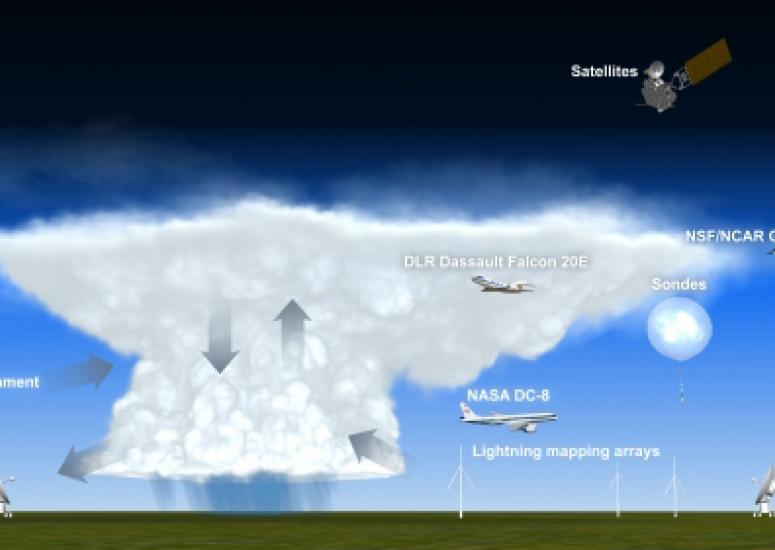-

Storms in plane sight
Scientists are analyzing results from a project that pulled together chemists, radar experts, cloud physicists, forecasters, pilots, and other specialists to investigate the evolution of thunderstorms.
- Air Quality
-
Power boost for volcanoes
Sulfate gases emitted by the Nabro volcano boosted stratospheric particles and gas across the entire Northern Hemisphere in 2011.
- Climate,
- Air Quality
-

Modeling nuclear radiation
After an earthquake and tsunami damaged the Daiichi nuclear power plant in Fukushima, Japan, on March 11, 2011, an unknown quantity of radioactive material was released into the surrounding air and sea.
- Air Quality
-

What's happening with methane?
Atmospheric carbon dioxide has been increasing fairly steadily for decades, but methane has accumulated at a more erratic pace. The increase virtually stalled for much of the last decade before resuming after 2007.
- Climate,
- Air Quality
-
Ozone production and the circadian rhythm of plants
A team that includes NCAR scientists Anne Boynard and Alex Guenther has found that the rate at which plant canopies emit isoprene, a volatile organic compound, is influenced by circadian rhythms.
- Air Quality
